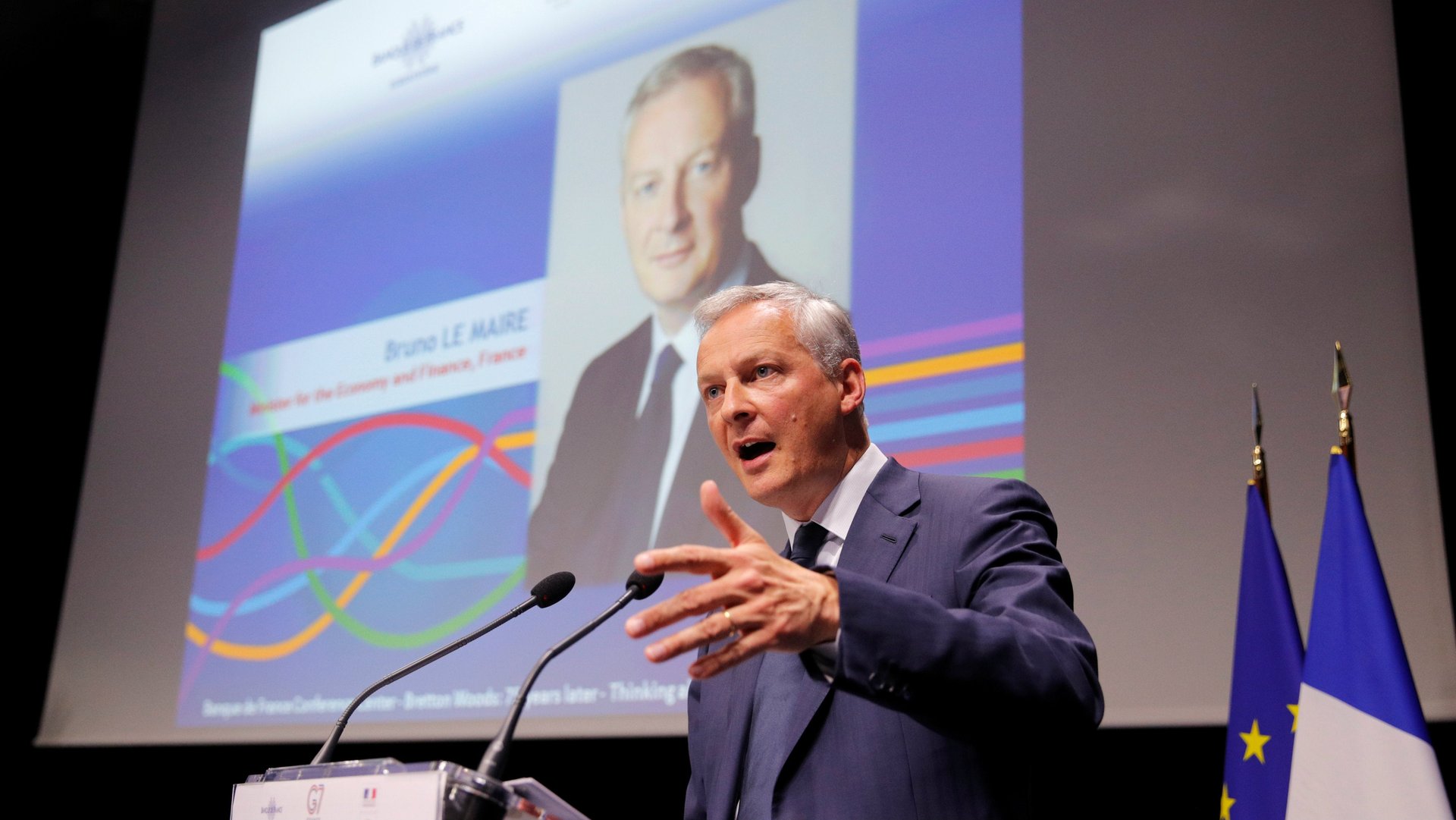The world’s finance chiefs are worried about Facebook’s Libra disrupting their own currencies
Since the dawn of the internet, multinational tech companies have grown in power, size, and influence. But issuing their own currencies—as Facebook and its partners are proposing with their Libra coin—could be a step too far for government officials, who worry about the effect on their own sovereign money.


Since the dawn of the internet, multinational tech companies have grown in power, size, and influence. But issuing their own currencies—as Facebook and its partners are proposing with their Libra coin—could be a step too far for government officials, who worry about the effect on their own sovereign money.
Are they right to be fearful?
French finance minister Bruno Le Maire told Italian newspaper Corriere della Sera (link in Italian) that “the red line for us is that Libra must not transform into a sovereign currency.” Ahead of this week’s G7 meeting in France, Le Maire said he was concerned that tech companies are creeping onto governments’ turf, according to Reuters:
“These digital giants are turning into private states – states over which citizens have no control and where democracy has no place,” Le Maire said.
“We cannot let companies, which are serving private interests, gather all the attributes of sovereign states. We must act,” he added.
France, which currently holds the rotating presidency of the G7, is far from alone in its concerns about Libra, the cryptocurrency that Facebook and 27 partners plan to launch next year.
In Washington, Congress grilled Facebook executive David Marcus yesterday. Some of the lawmakers’ worries focused on the social media giant’s dismal record on protecting personal data, as well as concerns about competition and whether a Libra digital asset would help facilitate money laundering and terrorism financing (a concern shared by Treasury secretary Steven Mnuchin).
Elsewhere, Bank of England governor Mark Carney has repeatedly said there will be no room for regulatory experimentation when it comes to Libra, and Japanese officials have set up their own working group to discuss it.
Are they getting carried away? There’s been talk for years that tech giants could invade the financial sector, disrupting big banks the way they’ve disrupted other industries, like retail and music. For the most part, that hasn’t materialized in the West, where the financial industry is ruled by heavy regulation and dominated by powerful corporate institutions.
Now, at least a few government leaders are concerned that their own powers to print money could be undermined. Libra, it’s worth noting, is meant to be tied to a basket of sovereign currencies, like the dollar and euro, meaning it would inherit monetary policy from large central banks instead of set it. Facebook says it will distribute governance of Libra to as many parties as possible over time.
A major concern among financial watchdogs is that the Menlo Park, California company’s family of apps have more than 2 billion users around the world, representing a systemic risk if the cryptocurrency catches on. If it became popular for global internet commerce, particularly on Facebook but elsewhere as well, some think it would resemble its own economy. There are also questions about Libra’s potential impact on volatile currencies of smaller countries, which could lose control of policymaking if a monetary alternative were easily accessible (this already happens when consumers switch from their local currency to the US dollar).
Even so, it’s worth remembering that Libra’s success is far from assured, even if government watchdogs give it the go ahead. Google, Facebook, Apple, and Amazon have offered payment services for years, and they haven’t been a massive success. Libra is designed to be wired into the existing financial system and will be reliant on banks, trading firms, and other financial institutions (all of which are heavily regulated) to function.
The blowback in capitals around the world may say more about the reputation of Silicon Valley’s most successful companies than it does about the prospects for Libra’s success. If the words of central bankers and other finance chiefs are any indication, for all the fanfare of Facebook’s new project, the cryptocurrency may never actually get off the ground. This would be as much due to a lack of trust related to tech companies’ past behavior as in the technical details of the project. It would also reflect the limits of tech giants’ considerable, but not infinite, power.